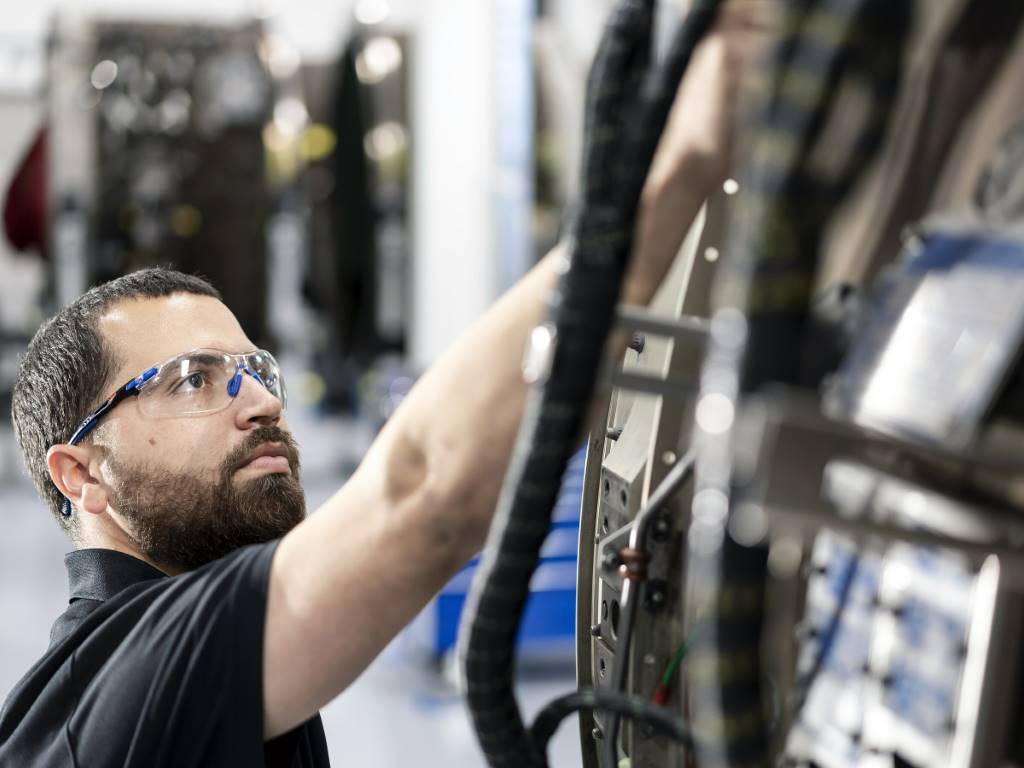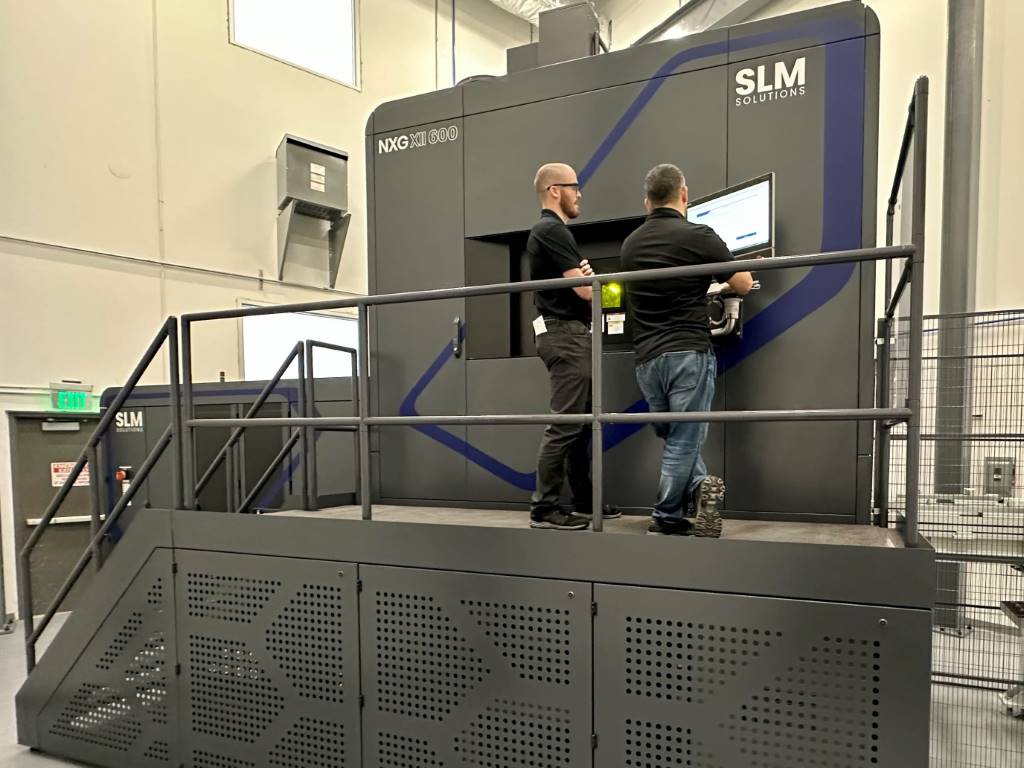Carolina dreaming!
Charlotte Regional Partnership's director of communications and public relations, Gina Carroll Howard explains how the State of North Carolina is helping to make aerospace manufacturer's dreams become a reality.
Charlotte Regional Partnership's director of communications and public relations, Gina Carroll Howard explains how the Carolinas are helping to make aerospace manufacturer's dreams become a reality.
Scattered throughout Charlotte USA, more than 130 aerospace suppliers employ nearly 20,000 workers in avionics, composites, metals, engine systems, interior products and control systems, as well as maintenance, repair and overhaul facilities – just about everything needed to build and maintain an entire commercial aircraft. The heaviest concentration is located just outside Charlotte in Monroe, North Carolina. This isn't by chance. About 10 years ago, Monroe Economic Development's executive director, Chris Platé began a focused effort to transition the city's economy from metalworking and automotive to aerospace. “We have several competitive advantages that made us attractive to aerospace companies,” Platé explains. “Generations of skilled metalworkers were unique in Monroe. After 9/11 happened, we swam against the tide and focused on aerospace, a high-precision, high-value industry with critical intellectual property.” No place like home Seventeen aerospace suppliers now call Monroe home. By creating training programmes, recruiting new companies and converting existing machine shops, the community has attracted $600 million in aerospace investment since 2002. Within a seven-mile radius, marquee brands, such as ATI Allvac, Safran Turbomeca Manufacturing, UTC Aerospace and others employ close to 2,800 people. IMET, the newest of three companies specialising in revert control and management, works with customers to develop closed-loop supply chain solutions for key materials. According to IMET's CEO, Ruaraidh Williamson, the buy-to-fly ratio can be as high as 12:1 or 13:1 for many flying components. IMET's titanium and super alloy revert management solutions are, therefore, critical in reducing material costs. The company delivers solutions throughout the manufacturing supply chain, as well as in the aftermarket sector. “We're on the doorstep of one of the world's major super alloy manufacturers, as well as a number of local manufacturers and suppliers to large aerospace companies, such as Boeing,” Williamson notes. He also points to the advantages of having IMET's headquarters in the Charlotte metro area: a quality of life that attracts “the best people in the industry,” and an airport with the national and international accessibility needed to reach customers. Charlotte USA's strong regional supply chain, low overall fixed operating costs, and size of the industrial gas turbine industry all are reasons why Winbro Group Technologies chose to locate its North American technology development and production centre in the area. The US-owned company has its main facility in the UK, but Robb Hudson, Winbro vice-president, knows how important local sourcing is for OEMs to reduce costs. “Work in progress costs, as well as transportation costs for these already-expensive components can get crazy,” Hudson points out. So, about two years ago, Winbro opened an 18,000ft2 facility in Rock Hill, South Carolina, just outside Charlotte. The company works with Praxair Surface Technologies, which provides specialty coatings, and Stork Herron Testing labs, among other companies in the regional aerospace supply chain. The location also is convenient to GE, Pratt & Whitney and other industrial gas turbine manufacturers for which Winbro provides process development and drilling. Winbro's customers can purchase the high-speed EDM and laser drilling equipment that it manufactures or Winbro can do the work for them. The company's machines drill all the cooling holes in the high-pressure blades that go on Rolls-Royce's Trent 1000, one of the engines on the new Boeing Dreamliner. Winbro's business has been growing so rapidly that Hudson says the company plans to build a dedicated production facility in the area within the next 18 months. He also has had conversations with aerospace suppliers interested in moving to the area because of their complementary work in the turbine industries, including surface finishing, brazing and heat treatment.  Right place, right time The Carolinas' supply chain was an important factor in Boeing selecting Charleston, South Carolina – just a three-hour drive from Charlotte – for its 787 Dreamliner plant. GM Nameplate, which has a Monroe operation, has been doing business with Boeing since 1964 and was awarded the aircraft manufacturer's contract for mandatory markings on the Seven Series aircraft in the mid-1990s. The Monroe facility, now part of the company's GMN Aerospace group, has played a support role in providing mandatory markings for the aerospace industry indirectly for over 10 years. The group supports Boeing suppliers that include BE aerospace, C&D Zodiac and any other tier 1 partners whose products require mandatory markings. “Boeing already knew GM Nameplate's system had the necessary capabilities, so it was an easy transition to award the contract, which supports areas such as mid-body join and final assembly,” says Carlo Mears, GMN Aerospace vice-president. “GMN has been supplying the mandatory markings to Boeing's Charleston plant for more than a year.” Boeing also takes advantage of another Monroe company's innovative process for forming titanium airframe components. Cyril Bath is known for stretching aluminium alloy sheets to form fuselage skins. However, the Dreamliner's fuselage made of advanced materials requires new forming technology, and the aircraft maker asked Cyril Bath to work on a solution. In 2007, Cyril Bath commercialised the Hot Stretch Forming (HSF) process for titanium airframe structures that meet all specifications and reduce the buy-to-fly weight ratio. In 2011, Boeing approved the company as a tier 1 supplier and awarded Cyril Bath a five-year contract for a package of finished air frame components. “Cyril Bath has complete integration responsibility for this project, including all the finished machined titanium components,” affirms Marty Moffat, Cyril Bath vice-president of sales and marketing. In addition to Boeing, Cyril Bath is a key supplier on other 787 airframe programs and in October 2012, the company announced it would expand its Monroe facility to boost production. “Charlotte USA's aerospace cluster continues to develop rapidly due to existing businesses' expansions and companies entering our market,” ends David Swenson, Charlotte Regional Partnership senior vice-president of economic development services. “Companies throughout the world are attracted by our skilled workforce, location in the growing Southeast US aerospace market, and our competitive business climate. Add to that the research and development capabilities of The University of North Carolina at Charlotte's Centre for Precision Metrology and our community colleges' industry-specific training programmes, and you have the potential for sustainable, long-term growth.” www.charlotteusa.com
Right place, right time The Carolinas' supply chain was an important factor in Boeing selecting Charleston, South Carolina – just a three-hour drive from Charlotte – for its 787 Dreamliner plant. GM Nameplate, which has a Monroe operation, has been doing business with Boeing since 1964 and was awarded the aircraft manufacturer's contract for mandatory markings on the Seven Series aircraft in the mid-1990s. The Monroe facility, now part of the company's GMN Aerospace group, has played a support role in providing mandatory markings for the aerospace industry indirectly for over 10 years. The group supports Boeing suppliers that include BE aerospace, C&D Zodiac and any other tier 1 partners whose products require mandatory markings. “Boeing already knew GM Nameplate's system had the necessary capabilities, so it was an easy transition to award the contract, which supports areas such as mid-body join and final assembly,” says Carlo Mears, GMN Aerospace vice-president. “GMN has been supplying the mandatory markings to Boeing's Charleston plant for more than a year.” Boeing also takes advantage of another Monroe company's innovative process for forming titanium airframe components. Cyril Bath is known for stretching aluminium alloy sheets to form fuselage skins. However, the Dreamliner's fuselage made of advanced materials requires new forming technology, and the aircraft maker asked Cyril Bath to work on a solution. In 2007, Cyril Bath commercialised the Hot Stretch Forming (HSF) process for titanium airframe structures that meet all specifications and reduce the buy-to-fly weight ratio. In 2011, Boeing approved the company as a tier 1 supplier and awarded Cyril Bath a five-year contract for a package of finished air frame components. “Cyril Bath has complete integration responsibility for this project, including all the finished machined titanium components,” affirms Marty Moffat, Cyril Bath vice-president of sales and marketing. In addition to Boeing, Cyril Bath is a key supplier on other 787 airframe programs and in October 2012, the company announced it would expand its Monroe facility to boost production. “Charlotte USA's aerospace cluster continues to develop rapidly due to existing businesses' expansions and companies entering our market,” ends David Swenson, Charlotte Regional Partnership senior vice-president of economic development services. “Companies throughout the world are attracted by our skilled workforce, location in the growing Southeast US aerospace market, and our competitive business climate. Add to that the research and development capabilities of The University of North Carolina at Charlotte's Centre for Precision Metrology and our community colleges' industry-specific training programmes, and you have the potential for sustainable, long-term growth.” www.charlotteusa.com












